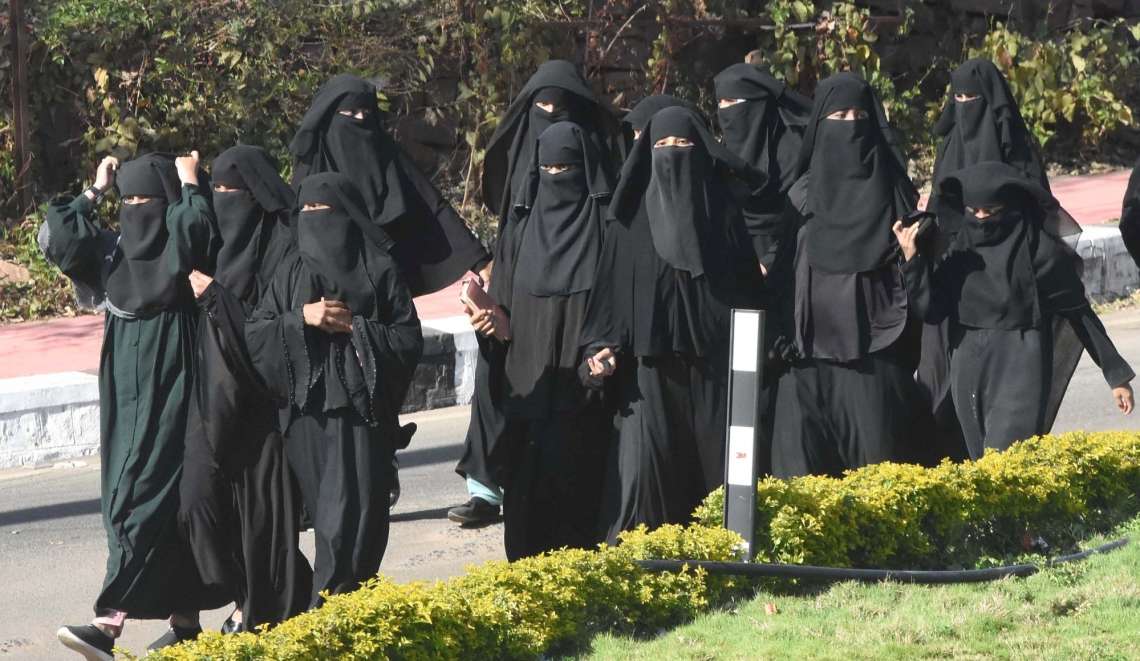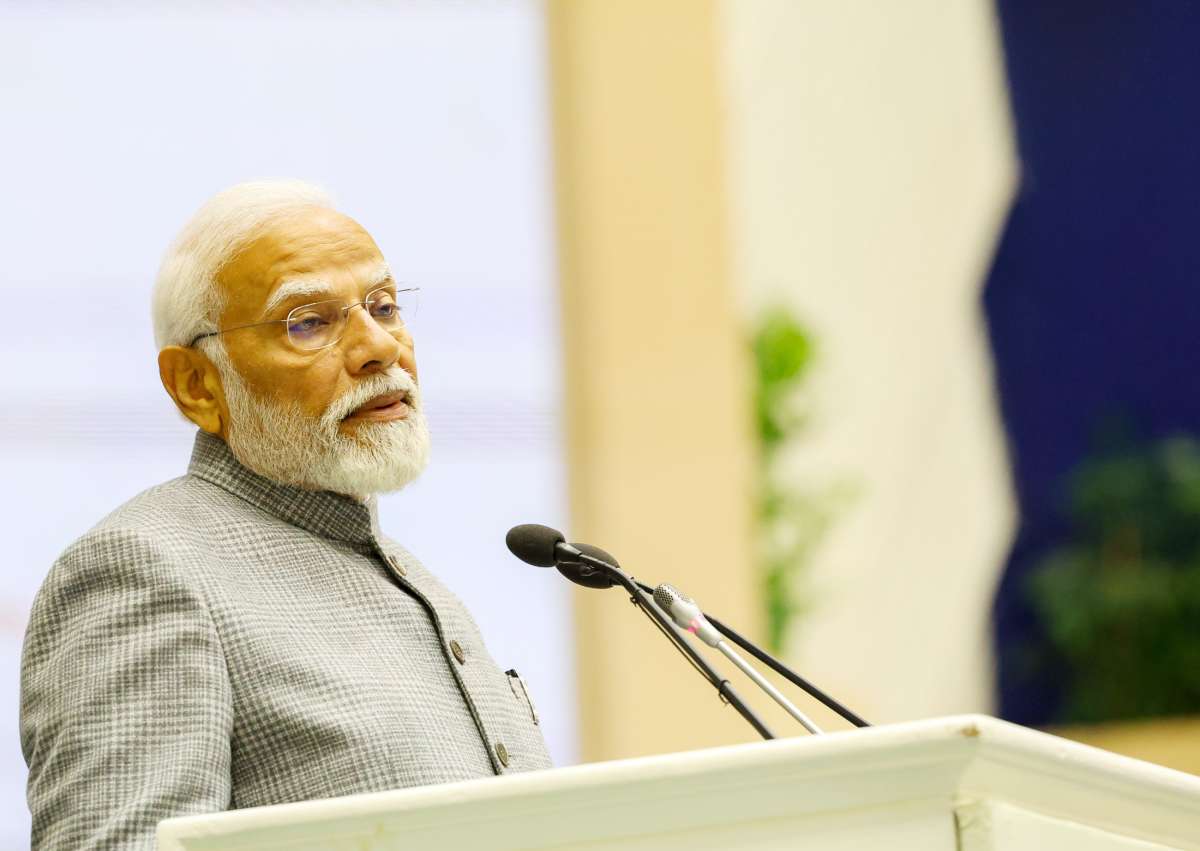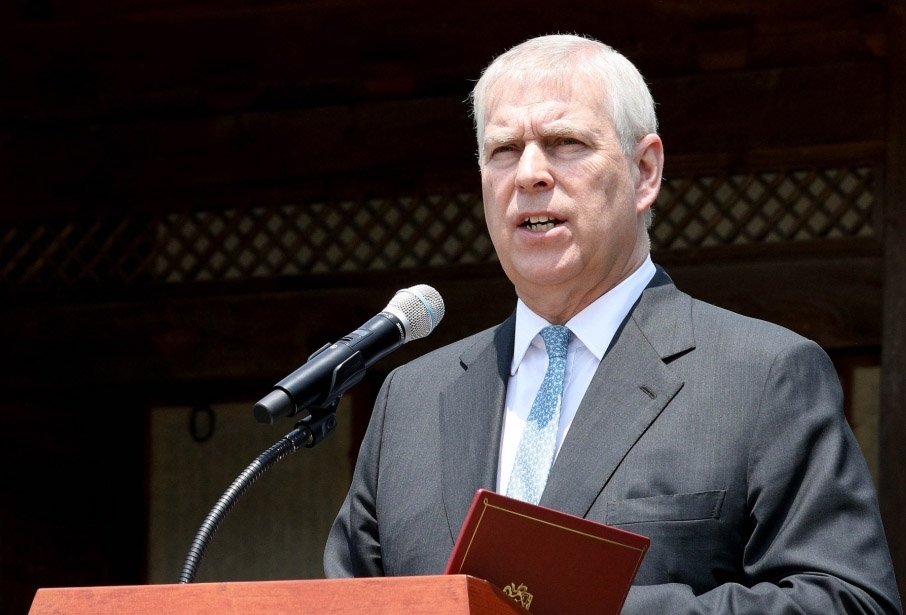The legislation prohibits the use of clothing that conceals the face in public areas, with specific reference to the burqa…reports Asian Lite News
Portugal’s parliament has passed a controversial bill banning the use of face veils in public spaces when worn for religious or gender-related reasons — a measure widely viewed as targeting Muslim women who wear garments such as the niqab or burqa.
The proposal, introduced by the far-right Chega party, was approved on Friday with support from several center-right parties, including the Social Democratic Party (PSD), Liberal Initiative, and CDS–People’s Party. Left-leaning parties — such as the Socialist Party (PS), Livre, Portuguese Communist Party (PCP), and the Left Bloc — voted against the bill.
The legislation prohibits the use of clothing that conceals the face in public areas, with specific reference to the burqa — a full-body garment covering a woman from head to toe — and the niqab, which covers the face while leaving a slit for the eyes. Chega argued that the measure is necessary to promote gender equality and protect human dignity, citing similar legislation already enacted in other European nations.
“The Portuguese state must not allow anyone to hide women behind a piece of fabric in the name of religion or tradition,” Chega leader André Ventura stated during the parliamentary session. “In Portugal, those who arrive must respect our values, our customs, and our way of life.”
If enacted, the ban would apply across most public spaces, including streets, government buildings, public service facilities, sporting events, and demonstrations. However, exceptions are included for circumstances involving health, professional activities, artistic performances, climate-related conditions, or legal requirements. The face veil will still be permitted on airplanes, in places of worship, and inside diplomatic or consular buildings.
The proposed law also includes penalties. Those found in violation could face fines starting at €200 and reaching up to €2,000 for negligence. In cases deemed deliberate, fines could double, ranging from €400 to €4,000. Additionally, anyone found coercing another person to conceal their face — through violence, threats, or abuse of power — could face up to three years in prison or a significant fine.
Despite the relatively small number of women in Portugal who wear Islamic face coverings, the measure has stirred intense political and public debate, echoing controversies across Europe over religious expression and secular values.
Chega pointed to precedents in countries like France, Austria, Belgium, and the Netherlands, all of which have enacted full or partial bans on face coverings in public. In its rationale, the party argued that such garments can represent oppression and run counter to the principles of liberty and equality enshrined in the Portuguese Constitution.
Opposition lawmakers, however, sharply criticized the bill, accusing Chega and its supporters of using the issue to inflame xenophobic and anti-Muslim sentiment.
“This initiative is not about protecting women — it’s about stigmatizing communities,” said Pedro Delgado Alves of the Socialist Party. “The far-right is using the face veil debate as a tool to promote exclusion and direct hatred towards religious minorities.”
Delgado Alves added that while no woman should be forced to wear a veil against her will, banning the garment outright undermines freedom of expression and religious liberty.
The PSD, which leads the current government, expressed qualified support for the initiative but called for further refinements in upcoming discussions. “The text presented can and should be perfected,” said a party representative, noting the measure will undergo review by the parliamentary committee on Constitutional Affairs, Rights, Freedoms and Guarantees before returning for a final vote.

Before becoming law, the bill must be approved by President Marcelo Rebelo de Sousa. He holds the power to either sign it, veto it, or refer it to the Constitutional Court for a legal assessment — a step some opponents of the bill are urging him to take.
If enacted, Portugal will join a growing list of European nations implementing restrictions on Islamic dress in the name of public order, secularism, and gender equality — a trend that continues to ignite debates over the balance between individual rights and national identity across the continent.
As the country awaits the president’s decision, the proposed ban has already drawn both support and protest from civic groups, legal experts, and international human rights observers, foreshadowing what could become a defining moment in Portugal’s ongoing struggle to reconcile cultural integration with national values.














